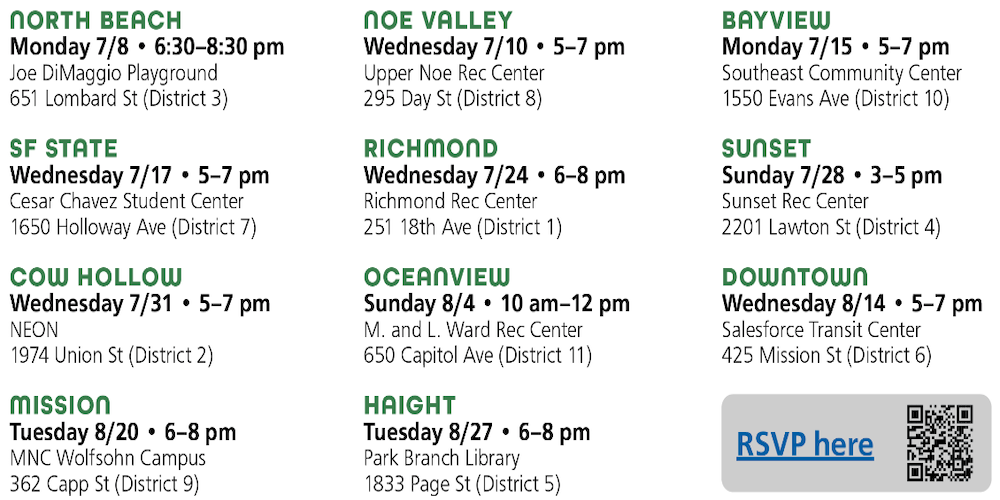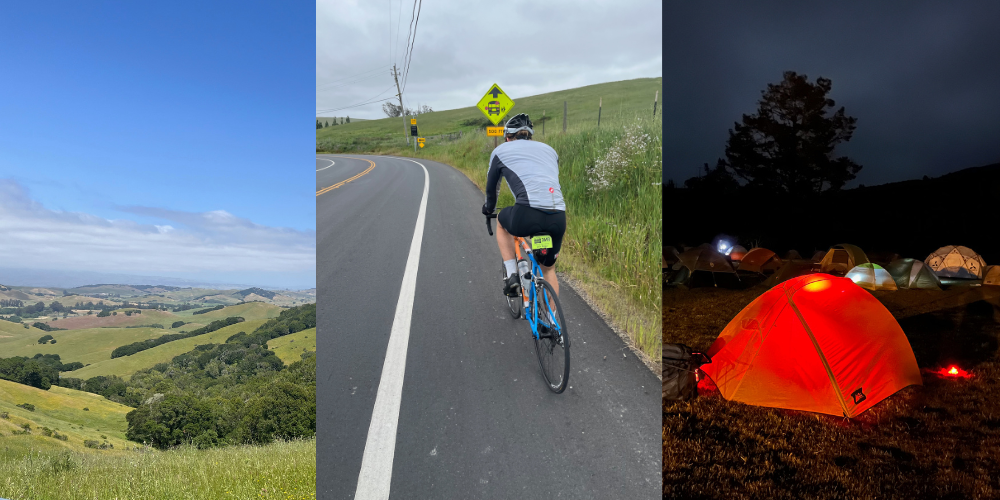The San Francisco Bicycle Coalition is holding a vigil on July 2nd at 5pm for the death of Steven Bassett, the 70-year-old cyclist who was doored by an SFPUC employee on May 30th and later succumbed to his injuries.
San Francisco, California — Steven Bassett, a longtime member of the San Francisco Bicycle Coalition and an avid cyclist, passed away on June 11 after being doored on May 30 by an SFPUC employee on Fairfax Avenue and Newhall Street in the Bayview.
The SF Bicycle Coalition will be hosting a silent vigil to mourn and honor Bassett at the scene of the collision.
Tuesday, July 2nd at 5pm
Fairfax Avenue and Newhall Street
SF Bike invites attendees to offer a candle or flowers to Steve’s memorial.
To be respectful of Bassett’s family and friends, we invite the press to interview SF Bicycle Coalition’s media contact, family and friends, or other advocates away from or at a different time from the vigil.
Bassett’s death mark’s San Francisco’s 18th traffic fatality this year, according to City records, and the first involving a person biking. There have been twelve other fatalities of vulnerable road users in 2024, all of which were people walking, including two additional pedestrians since Steve Bassett passed.
“Steve was a beloved brother, friend, and coworker. Our hearts and thoughts are with everyone who knew and loved him,” says SF Bicycle Coalition Executive Director Christopher White. “He loved the Giants, loved to ride his bicycle, and was a big supporter of making our city better for people who bike for everyday transportation.”
Dooring, or crashes caused when someone inside a motor vehicle opens their door into the path of a bicyclist, is one of the leading causes of bicycle crashes in San Francisco. It accounts for approximately 16% of crashes that cause injury to a person biking in which the person biking is not at fault, according to an SFMTA report from 2016. The California Vehicle Code states that a person opening the door of a vehicle is responsible for avoiding oncoming moving traffic, including people biking (CVC 22517).
“Dooring is completely preventable, if people driving have the right training, and if streets are designed safely,” said White. “Every city employee who drives a city vehicle should be required to receive comprehensive training on operating vehicles around people on bikes and bike infrastructure,” White continued. He pointed out that such training would include the so-called Dutch Reach, or using the hand furthest from the car door to open it so that one’s body twists in the direction of oncoming traffic. This helps people inside a vehicle see people biking behind them.
In 2020, Devlin O’Connor died when he was doored on Frederick Street near Kezar Stadium and knocked into oncoming traffic. In 2019, Tess Rothstein was hit and killed by a box truck on Howard Street near 6th Street; Rothstein reportedly swerved to avoid a door opening in her path.
The location where the crash occurred had no dedicated bike infrastructure. However, most painted bike lanes (or Class II lanes) in San Francisco run alongside parked cars, and are painted close enough that a person biking in it is inside the “door zone”, or the three to five feet that a door swings away from a vehicle when it opens. Replacing dangerous Class II designs with safer infrastructure would decrease the danger of being doored for people who bike.
The San Francisco Bicycle Coalition calls on the SFMTA to end its reliance on unsafe Class II infrastructure in the upcoming Biking and Rolling Plan, the city’s first comprehensive update to its Bicycle Plan since 2009, and begin converting existing Class II bike lanes along the High Injury Network into separated and protected bike lanes.
While the intersection where the crash occurred is not on the High Injury Network — the 12% of SF streets on which 68% of traffic fatalities and serious injuries occur — the Bayview neighborhood has several nearby streets on the network. It also has some of the lowest density of dedicated biking and rolling infrastructure in the city.



